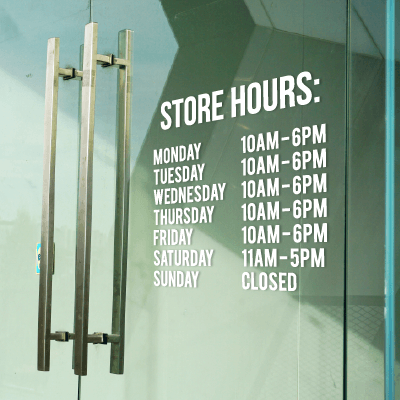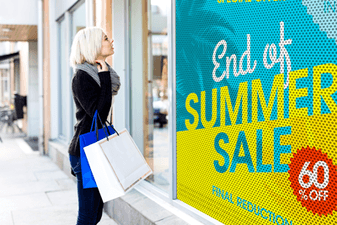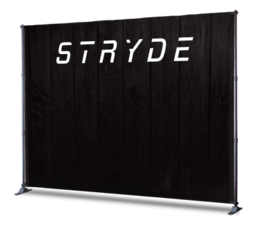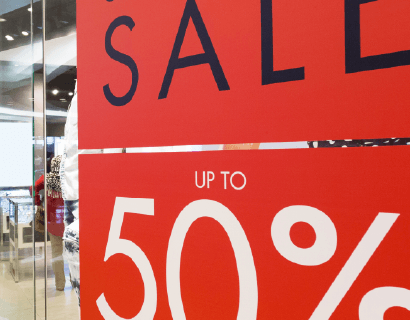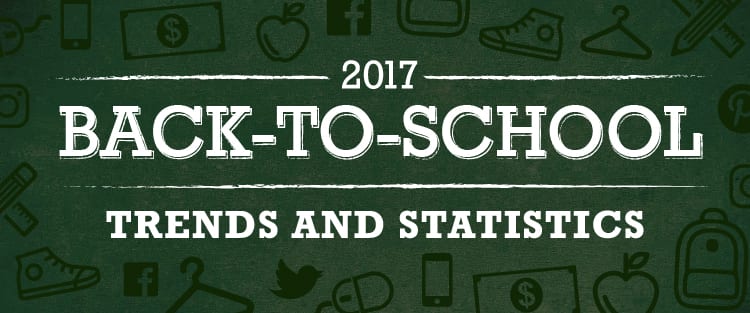See how back-to-school sales can bring businesses an increase of revenue and foot traffic for in-store purchases. In a world that’s dominated by Amazon, the back-to-school season is a refreshing reminder that brick-and-mortar locations can still thrive in a digital age. We’ve also included a list of 5 ways businesses can take advantage of the back-to-school season.

5 Ways Businesses Can Take Advantage of the Back-to-School Shopping Season
- Start Early – The early bird gets the worm is a cliche that applies to store owners as much as it does to students. Preparing for the BTS shopping rush well in advance will open the door to targeting parents and children alike. Because BTS dates vary nationwide, it’s best to start earlier and allow sales to continue through the season, up until the end of August or the beginning of September. Typically, the season will run between mid-July to mid-August, which allows shoppers enough time to prepare for the start of school. The earlier businesses get marketing materials distributed and displayed, the greater chance BTS supplies will be purchased from your store, especially by those who want to get all their shopping out of the way to leave room for more vacation time. Remember, to update both your in-store marketing as well as your digital properties to ensure that no matter where purchases are made or research is done, your potential customers are well aware of your offerings.
- Sales Sales Sales – Who doesn’t like to save money? Around 68% of shoppers look for sales when doing their back to school shopping (this includes parents and college-aged students). Sales on clothing, supplies, and electronics are the best for piquing the curiosity of consumers; focus your sales around those categories of products to get consumers in your store. BOGO’s and slashed pricing are simple and effective sale types to further motivate a buyer’s decision to purchase. The more effectively your sales are distributed prior to the BTS season, the higher chance of buyer participation. Distribution should be done over various mediums (this depends on what works best for your business) such as social media, direct mail, paid advertising, and more. In most cases, in-store (both inside and outside of your location) and online are the most effective in notifying customers of upcoming sales. Prominent deadlines and/or other tactics tied to the law of scarcity can be used to compel your target audience to act!
- Social Media – It shouldn’t come as a surprise that social media plays a decisive role in promoting back-to-school promotions. With parents (75% use social media to find sales) and kids alike using social media, well-placed, online advertisements and paid or organic social posts are the best way to target your audience. Successful back-to-school campaigns implement a range of techniques, including the use of GIFs, Snapchat advertising, viral content, and even kid-created ads. Most of the most popular social media platforms offer a wide range of targeting options to hone in on the correct audience depending on your business’ primary offering.
- Follow the Trends – Utilizing the latest trends in fashion, accessories, and technology to draw in customers is how businesses play to the wants and needs of its target audience. Deals on trendy clothing and supplies are more likely to draw attention than deals on similar items that are outdated (new looks, fresh finds, and hot technology deals are perfect for BTS sales). As noted in graphic and per the Staples Lookbook, some of the top trends for 2017 apparel and supplies for elementary and high school age kids are animal prints and patterns, floral, and tropical themed items and food prints. Being ahead of the curve and having a full knowledge of current trends and make the difference between a successful year and a huge missed opportunity during the 2nd biggest retail shopping period of the year.
- In-store Deals – Offering limited deals and promotions that are only available in your store will get customers off the couch or device and into the aisles. Once in the store, you can further market to customers with well-placed product displays and more sales. Use your social media accounts to disseminate these in-store deals and drive foot traffic to your physical location. Using deals like this can also help savvy retail marketers “close the loop” and determine whether their digital spend is translating to in-store customers and revenue.
Infographic Resources:








